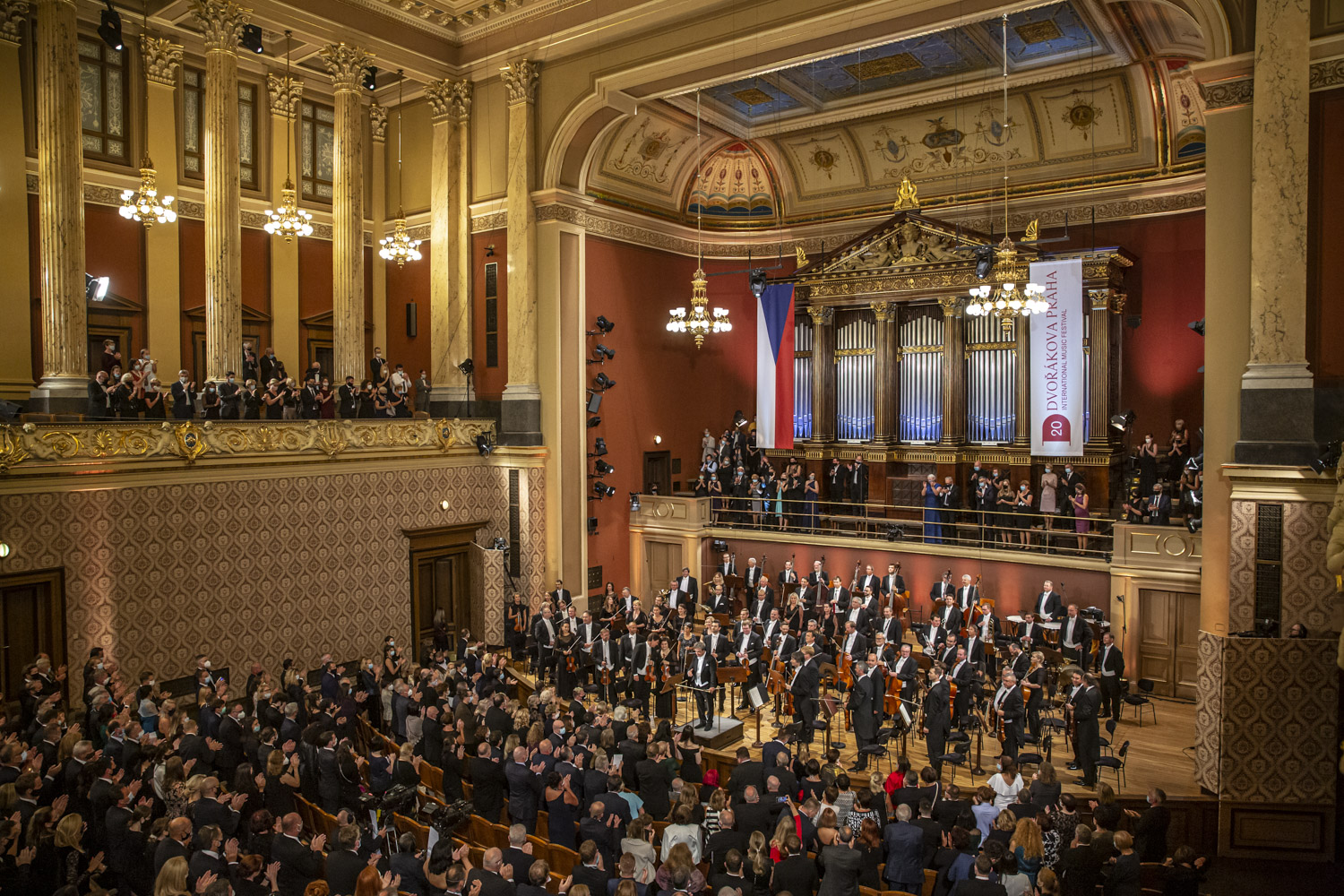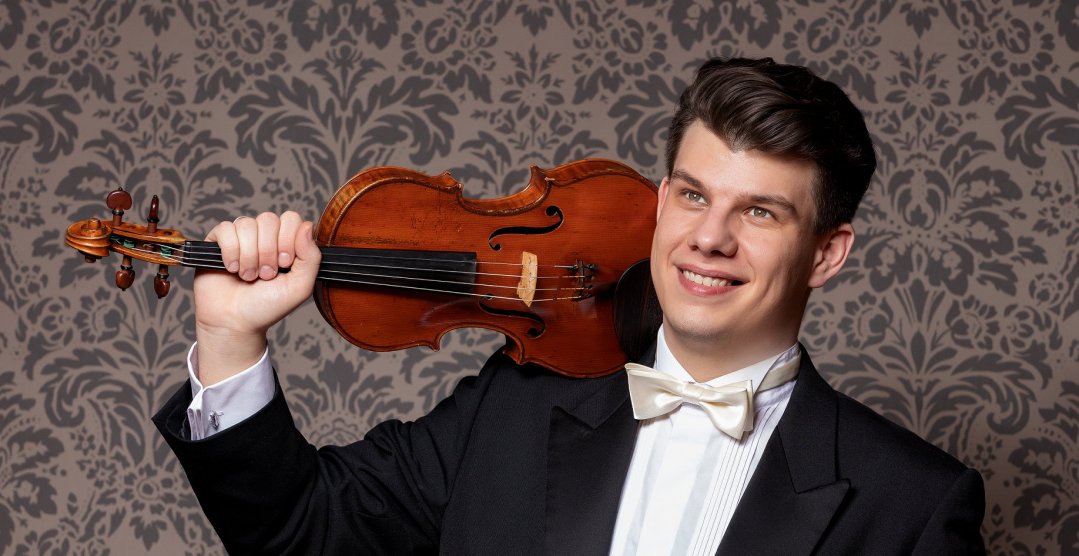
Vítězslav Novák: Lady Godiva, Op. 41
Erich Wolfgang Korngold: Violin Concerto in D major, Op. 35
Antonín Dvořák: Slavonic Dances, Series II, Op. 72, B. 147
The Bamberg Symphony has always taken pride in its Czech origins and sound. With its present chief conductor Jakub Hrůša, it is as if the orchestra were increasingly on a return journey to Prague, the city from which its founding members had to depart after the Second World War. As the principal guest conductor of the Czech Philharmonic, Hrůša is an embodiment of the historical ties between the Czech and German peoples and their musical life. This connection, including the orchestra’s significant orientation of repertoire towards Czech music, led naturally to the idea of a joint orchestral residency of the Bamberg Symphony with the Czech Philharmonic at the 2021 festival. The violinist Jan Mráček, concertmaster of the Czech Philharmonic, will be the evening’s soloist.
The concert programme also emphasises the cosmopolitan aspect in a Czech environment. The overture Lady Godiva by Vítězslav Novák takes its dramatic inspiration from the medieval legend of a woman who rode naked through the streets of Coventry so her husband would lower the taxes on the local population. The composer of the Violin Concerto in D Major, the Brno native Erich Wolfgang Korngold, became famous for his film music, and he shaped the musical style of old Hollywood. Antonín Dvořák’s second set of Slavonic Dances is an increasingly popular item in the worldwide repertoire, and its pensive character seems to speak to the public more than the immediacy of the first set.
The Bamberg Symphony is the only orchestra of world renown that is not based in a vibrant metropolis. Almost 10% of the local population subscribe to one of the orchestra’s five concert series, in many cases for decades. However, the ‘magnetic effect’ of the orchestra resonates far and wide: the traveling orchestra has been performing its characteristically dark, sombre, and warm sounds and the musical echo of its hometown throughout the world since 1946. With almost 7,500 concerts in over 500 cities and 63 countries, they have become a cultural ambassador for Bavaria and all of Germany. They regularly tour the USA, South America, Japan, and China, for example, and are invited by renowned concert halls and festivals worldwide. The Bamberg Symphony therefore briefly describes their mission as Resonating Worldwide.
The circumstances of its founding make the Bamberg Symphony a mirror of German history: in 1946, former members of the German Philharmonic Orchestra Prague met colleagues in Bamberg who also had to flee their homeland as a result of the war and post-war turmoil. Starting with the orchestra in Prague, its lines of tradition can be traced back to the 18th and 19th centuries. Thus, the roots of the Bamberg Symphony reach back to Mahler and Mozart. Since 2004, the orchestra has held the honorary title of Bavarian State Philharmonic Orchestra, and is substantially financed by the Free State of Bavaria.
Four principal conductors, Joseph Keilberth, James Loughran, Horst Stein, and Jonathan Nott, as well as Artistic Director Eugen Jochum have led the orchestra since 1946. With Czech Jakub Hrůša, the fifth principal conductor since 2016, a bridge has again been built between the historical roots of the Bamberg Symphony and the present day, more than 75 years after the orchestra was founded. They regularly perform with their honorary conductors Herbert Blomstedt and Christoph Eschenbach, as well as with other leading conductors such as Manfred Honeck, Andris Nelsons and Lahav Shani.
A not insignificant contribution to increasing the worldwide high profile of the Bamberg Symphony is also attributed to the countless concert broadcasts in cooperation with Bavarian Radio (BR) as well as various other radio, record, and CD productions. In 2019, the orchestra broke new ground with a recording of Smetana's »Má vlast« using the direct-to-disc process, in which the recording is made directly onto a disc without digital post-processing, creating a unique sound experience. The recording of Mahler’s 4th Symphony (2020; accentus music) was awarded the Annual Prize of the German Record Critics at the end of 2021. This was followed by a recording of Anton Bruckner’s 4th Symphony in all three versions, united in one edition – a unique project to date, which won the International Classical Music Award 2022. Subsequently, the orchestra also received the ICMA 2023 for its recording of Hans Rott’s 1st Symphony (2022; Deutsche Grammophon). The Bamberg Symphony completed a cycle of four double CDs with symphonies by Brahms and Dvořák (2018-2022; TUDOR). In November 2022, two of these CDs were awarded »Recording of the Month« by BBC Music Magazine.
The fact that this group also places a great deal of emphasis on programmatic content at their concerts is attested to by the award from the German Music Publishers Association for »The Best Concert Programme« in spring 2018. In 2020, the orchestra received the Bavarian State Prize for Music. In 2021, an audio book was published (accentus music) that musically retells the unique history of the Bamberg Symphony from Mozart in Prague to the present day.
Since 2022, the Bamberg Symphony has set itself the goal of acting and travelling in a more climate-friendly manner, e.g., using means of transportation powered by alternative energy sources. For larger tours and trips abroad, efforts are being made to optimize travel routes and tour procedures. Increasingly, the orchestra stays in one country or place for longer periods, e.g., to play residencies or lead educational projects joined by local artists. By financially supporting environmental projects, including those in concert locations, the orchestra is attempting to offset most of the CO2 emissions caused by its own travels.
source: Bamberger Symphoniker
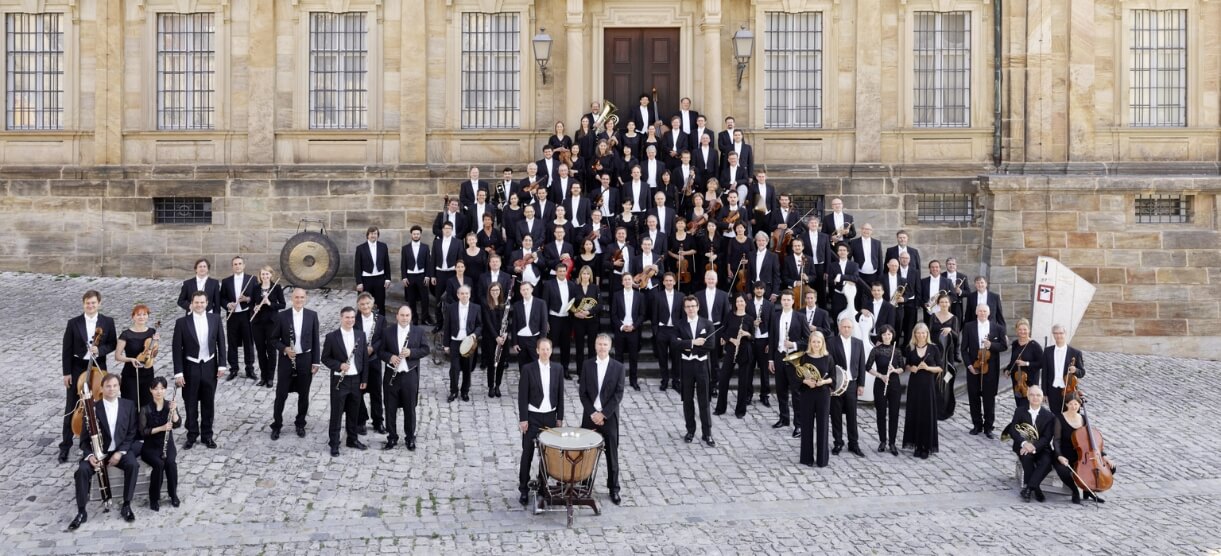
Jakub Hrůša is Chief Conductor of the Bamberg Symphony and Principal Guest Conductor of both the Czech Philharmonic and the Orchestra dell’Accademia Nazionale di Santa Cecilia. From autumn 2025, he will take up the post of Music Director at the Royal Opera at Covent Garden in London.
He frequently appears as a guest conductor with the world’s greatest orchestras, including the Berlin, Vienna, Munich and New York Philharmonics, the Bavarian Radio, NHK, Chicago and Boston Symphonies, the Leipzig Gewandhaus, Lucerne Festival, Royal Concertgebouw, Mahler Chamber and the Cleveland Orchestra, the Orchestre Philharmonique de Radio France, Dresden Staatskapelle, Orchestre de Paris, and Tonhalle Orchester Zürich.
He has led opera productions for the Vienna State Opera, the Royal Opera House, Opéra National de Paris, Zurich Opera, and the Glyndebourne Festival. In 2022, he made his debut at the Salzburg Festival with a new production of Káťa Kabanová.
For his recordings with the Bamberg Symphony, he received an ICMA for Hans Rott’s 1st Symphony in 2023, previously an ICMA for Bruckner’s 4th Symphony, as well as the Jahrespreis der Deutschen Schallplattenkritik for Mahler's 4th Symphony, as well as a BBC Music Magazine Award for Dvořák and Martinů Piano Concertos with Ivo Kahánek. In addition, he has received Gramophone and BBC Music Magazine Award nominations for Martinů Violin Concertos with Frank Peter Zimmermann.
Hrůša studied at Prague’s Academy of Performing Arts, where his teachers included Jiří Bělohlávek. He is President of the International Martinů Circle and The Dvořák Society. He was the inaugural recipient of the Sir Charles Mackerras Prize, and in 2020 was awarded the Antonín Dvořák Prize by the Czech Republic’s Academy of Classical Music, and – with the Bamberg Symphony – the Bavarian State Prize for Music. In 2023, Jakub Hrůša was awarded Honorary Membership to the Royal Academy of Music in London.
source: Bamberger Symphoniker
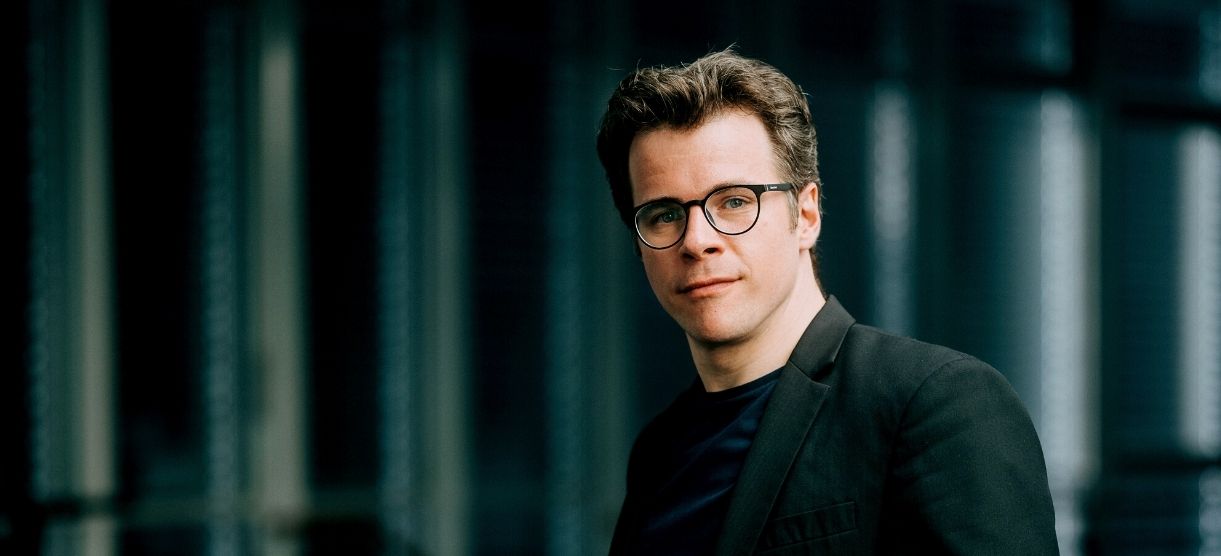
The violinist Jan Mráček has been one of the most prominent performers of his generation. He began playing violin at the age of five, and he studied at the School of Music of the City of Prague and the Prague Conservatoire. At the age of 13 he first appeared on the stage of the Rudolfinum alongside Josef Suk. His many competition successes include second prize at the 2010 Prague Spring Competition, when at the age of 19 he became the youngest laureate in its history. He appears regularly with Václav Hudeček, and since 2012 he has been an assistant at the Václav Hudeček Academy. In 2011 he became the youngest soloist in the history of the Prague Radio Symphony Orchestra, and three years later he won the Fritz Kreisler International Violin Competition in Vienna. Since 2015 he has been serving as concertmaster of the Czech Philharmonic. He appears as a soloist around the world together with such great conductors as Maxim Vengerov, James Judd, Jac van Steen, and Vladimir Fedoseyev.
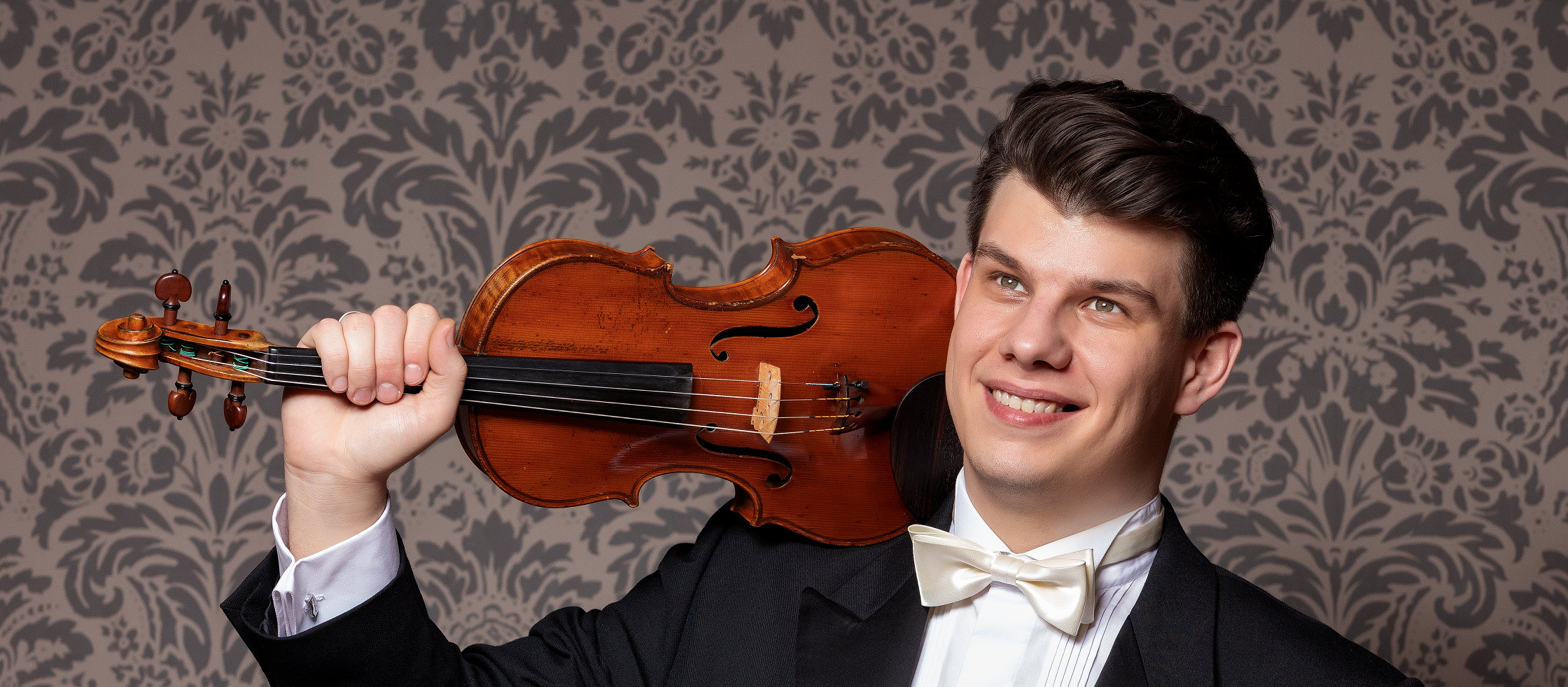
The Rudolfinum is one of the most important Neo-Renaissance edifices in the Czech Republic. In its conception as a multi-purpose cultural centre it was quite unique in Europe at the time of its construction. Based on a joint design by two outstanding Czech architects, Josef Zítek and Josef Schultz, a magnificent building was erected serving for concerts, as a gallery, and as a museum. The grand opening on 7 February 1885 was attended by Crown Prince Rudolph of Austria, in whose honour the structure was named. In 1896 the very first concert of the Czech Philharmonic Orchestra took place in the Rudolfinum's main concert hall, under the baton of the composer Antonín Dvořák whose name was later bestowed on the hall.
